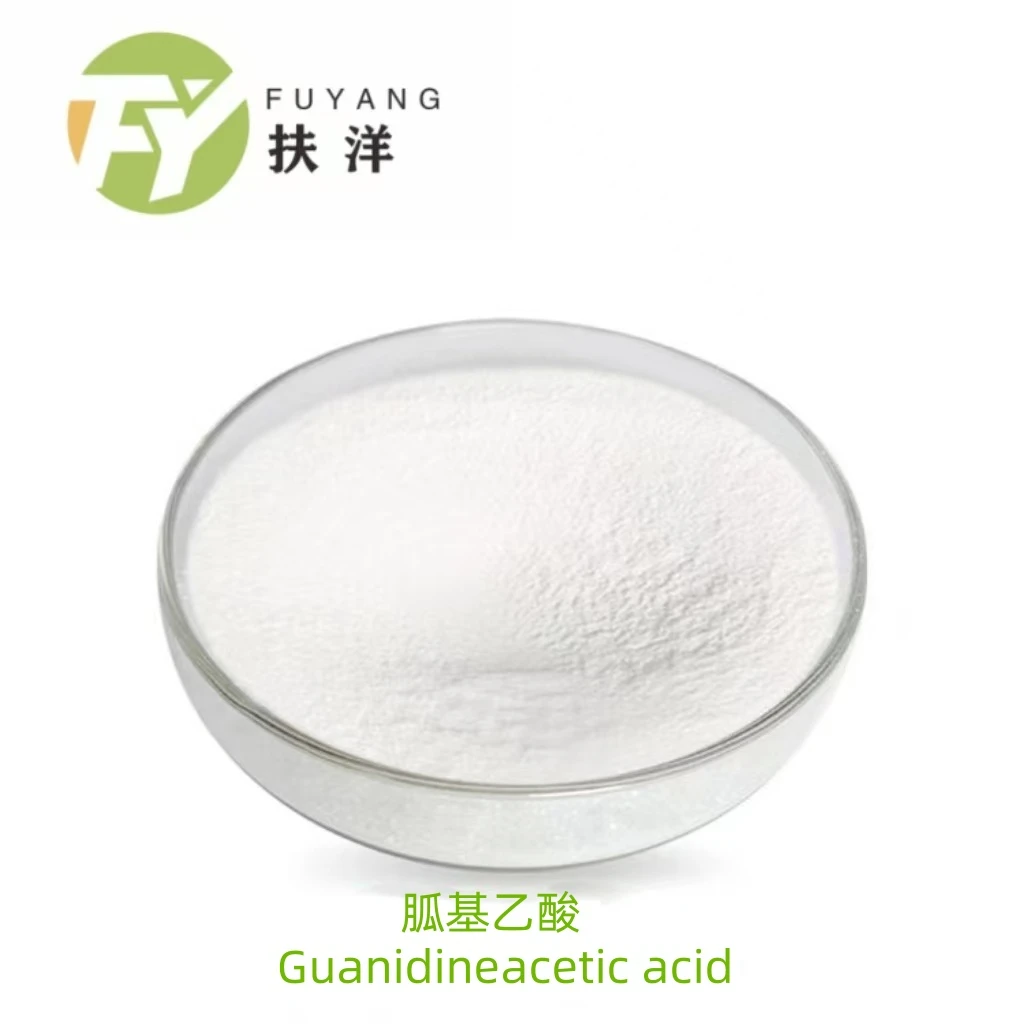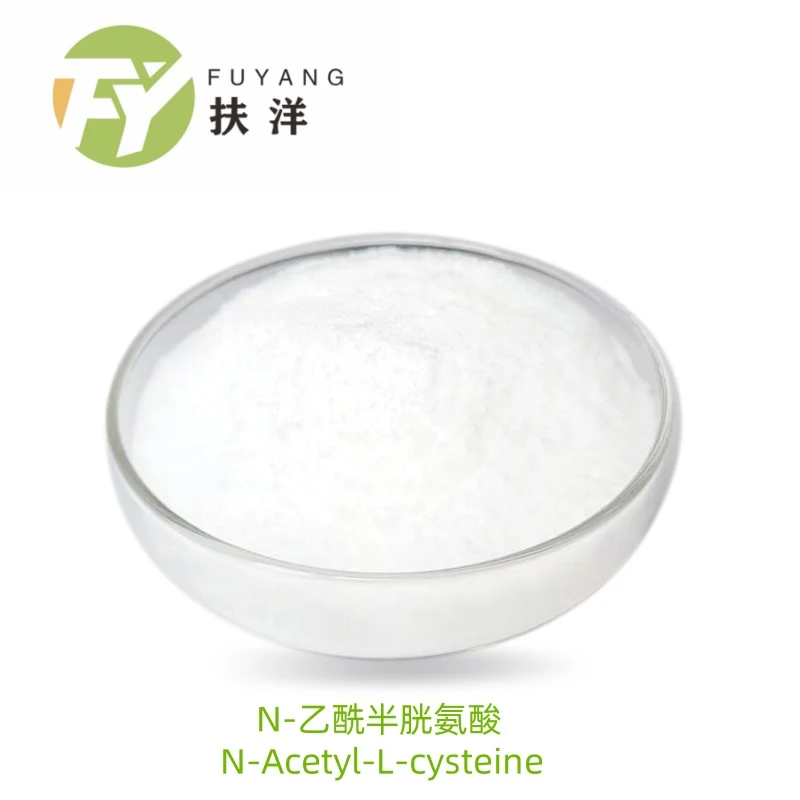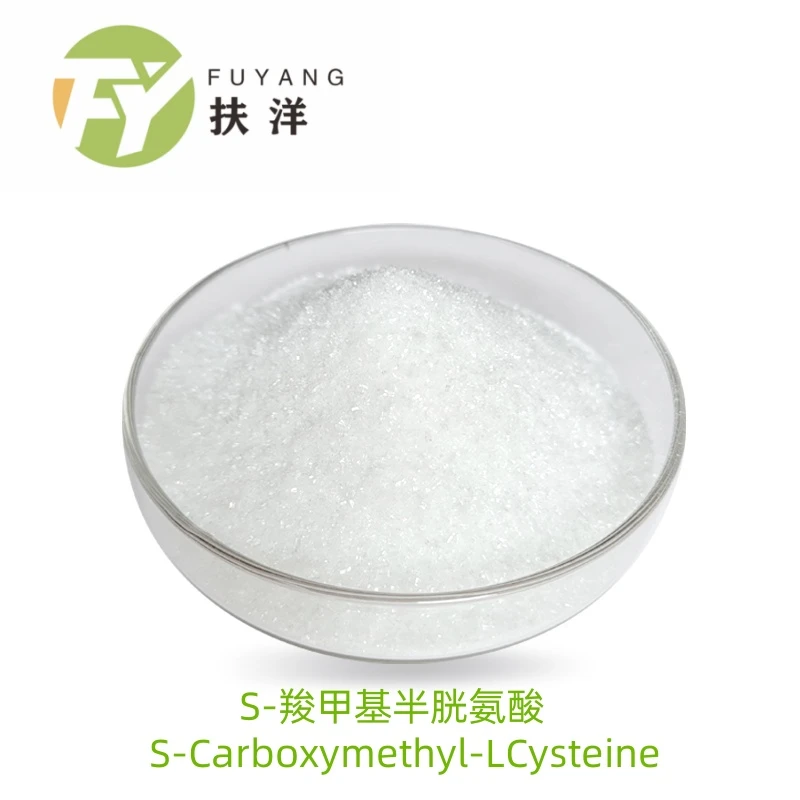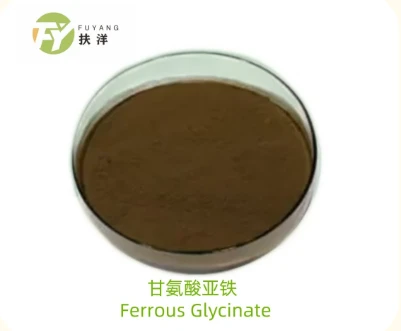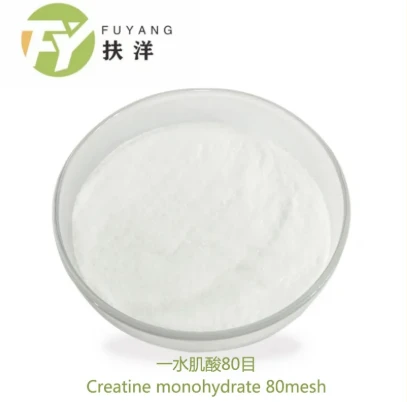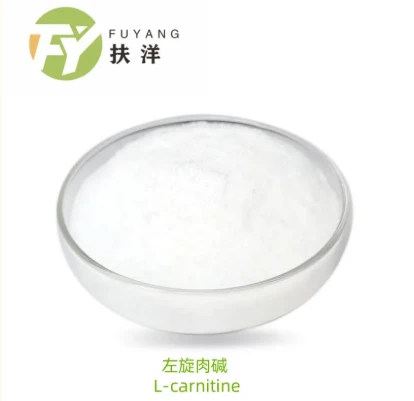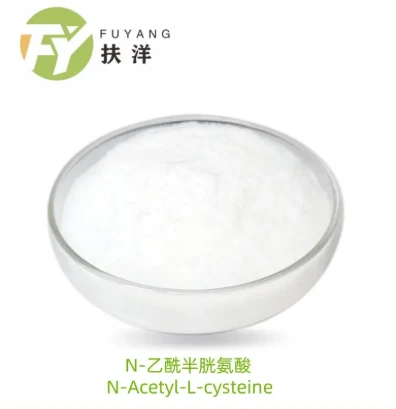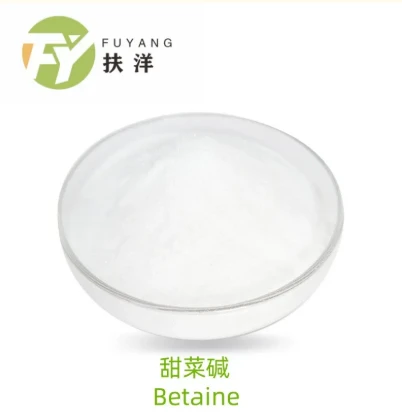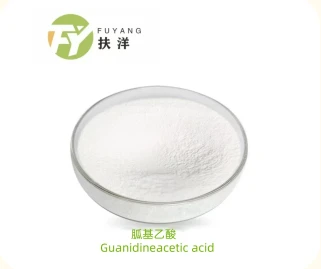Understanding L-Cysteine Hydrochloride Monohydrate: A Core Ingredient in Diverse Industries
In the realm of advanced chemical compounds, L-Cysteine Hydrochloride Monohydrate stands out as a pivotal substance, indispensable across a spectrum of industries ranging from pharmaceuticals and food to cosmetics and animal nutrition. This amino acid derivative, chemically denoted as CAS 7048-04-6, is prized for its unique biochemical properties, including its role as an antioxidant, a precursor to glutathione, and a crucial building block for protein synthesis. As global markets increasingly prioritize health, wellness, and functional ingredients, the demand for high-quality cysteine hydrochloride monohydrate continues to escalate, driven by its versatile applications and proven efficacy. This section explores the fundamental significance and burgeoning market trends surrounding this critical compound.
The market for cysteine hydrochloride monohydrate is experiencing robust growth, propelled by innovations in food processing, the expansion of the pharmaceutical sector, and a heightened focus on nutraceuticals. Industry reports indicate a compound annual growth rate (CAGR) of over 5% for the amino acids market, with cysteine derivatives playing a significant role. This surge is attributed to evolving dietary trends, the increasing incidence of lifestyle diseases necessitating targeted nutritional interventions, and the rising awareness among consumers regarding the benefits of functional food ingredients. Manufacturers are continuously investing in advanced production technologies to meet this demand, ensuring purity, consistency, and compliance with stringent international standards.
The Sophisticated Manufacturing Process of L-Cysteine HCl Monohydrate
The production of l cysteine hcl monohydrate is a complex, multi-stage process that demands precision engineering and rigorous quality control to achieve the high purity required for its diverse applications. While historically animal-derived sources were prevalent, modern production largely favors fermentation-based methods or advanced chemical synthesis from non-animal origins, ensuring a consistent, ethical, and high-quality product. This shift not only addresses ethical concerns but also enhances product stability and reduces potential contaminants.
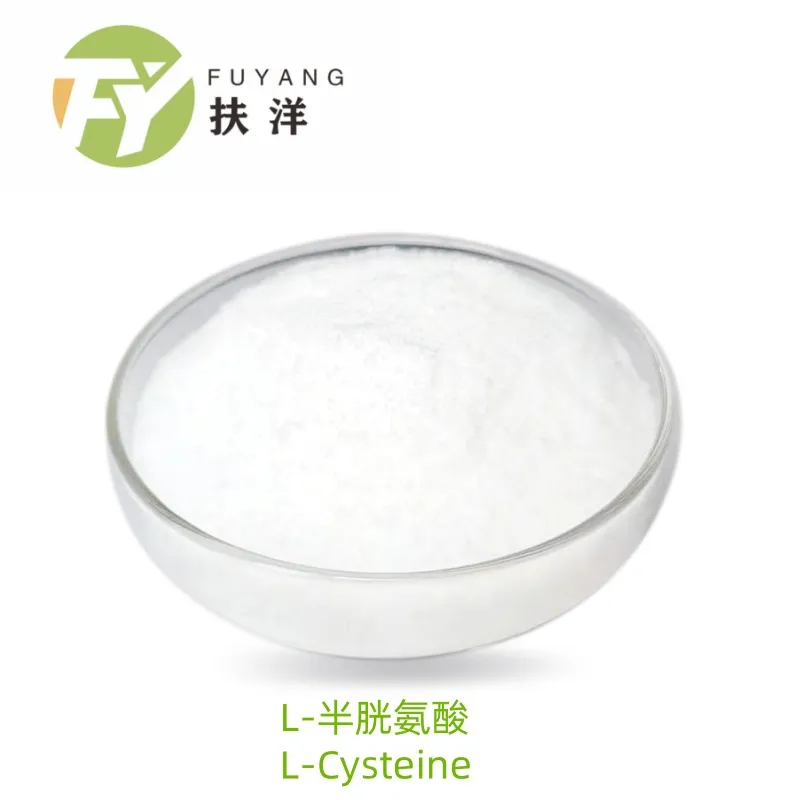
The typical manufacturing process involves several critical steps:
- Raw Material Preparation: For fermentation, this involves preparing a suitable carbon source (e.g., glucose) and nitrogen source for microbial growth, along with necessary minerals and trace elements. For chemical synthesis, specific precursors like chloroacetaldehyde and sodium hydrosulfide are used.
- Fermentation/Synthesis: In fermentation, specialized bacterial strains (e.g., E. coli engineered for high yield) are cultivated under controlled conditions (temperature, pH, aeration) to produce L-cysteine. In chemical synthesis, a series of reactions are meticulously managed to form the cysteine intermediate.
- Purification and Isolation: The crude L-cysteine solution undergoes various purification steps, which may include filtration, ion exchange chromatography, and activated carbon treatment to remove impurities.
- Hydrochlorination and Crystallization: The purified L-cysteine is then reacted with hydrochloric acid to form cysteine hcl monohydrate. Controlled crystallization conditions are crucial to ensure the correct crystalline form and particle size, which are vital for subsequent handling and application.
- Drying and Sifting: The wet crystals are dried using specialized dryers (e.g., vacuum dryers) to achieve the desired moisture content. Subsequent sifting ensures uniform particle distribution.
- Quality Control: Throughout the entire process, stringent quality control checks are performed. This includes testing for purity (Assay), heavy metals, microbial limits, specific rotation (to ensure L-form chirality), pH, and other parameters according to international standards such as USP (United States Pharmacopeia), EP (European Pharmacopoeia), and FCC (Food Chemicals Codex). Adherence to ISO 9001 and FSSC 22000 for food-grade products is critical, ensuring safety and reliability. The robust nature of this manufacturing process also contributes to an extended shelf-life under proper storage conditions, typically several years.
Technical Parameters and Specifications of L-Cysteine Hydrochloride Monohydrate
Understanding the precise technical parameters of l cysteine hydrochloride monohydrate is essential for its effective application in various industries. These specifications ensure product consistency, purity, and suitability for specific regulatory requirements, such as those set by pharmacopeias or food safety authorities. Below is a detailed table outlining typical parameters for high-grade cysteine hydrochloride monohydrate.
| Parameter | Specification (Typical) | Testing Standard |
|---|---|---|
| Product Name | L-Cysteine Hydrochloride Monohydrate | N/A |
| CAS No. | 7048-04-6 | N/A |
| Molecular Formula | C3H7NO2S·HCl·H2O | N/A |
| Molecular Weight | 175.63 g/mol | N/A |
| Appearance | White Crystalline Powder | Visual Inspection |
| Assay (Purity) | 98.5% ~ 101.0% | USP, EP, FCC |
| Specific Rotation [α]20D | +24.5° ~ +26.0° | USP, EP |
| Loss on Drying | 6.5% ~ 10.0% | USP, EP |
| pH (1% solution) | 1.5 ~ 2.0 | USP, EP |
| Heavy Metals (as Pb) | ≤ 10 ppm | USP, EP, FCC |
| Sulfate | ≤ 0.03% | USP, EP |
| Ammonium | ≤ 0.02% | USP, EP |
| Clarity of Solution | Clear and Colorless | Visual Inspection |
These specifications are rigorously tested using validated analytical methods to ensure each batch of l cysteine hcl monohydrate meets global regulatory and quality expectations.
Diverse Applications and Key Advantages
The versatility of cysteine hydrochloride monohydrate positions it as a highly valued ingredient across numerous sectors. Its unique properties, including its sulfur-containing thiol group, contribute to its functionality in various complex chemical and biological processes.
- Pharmaceutical Industry: As a pharmaceutical-grade raw material, L-Cysteine Hydrochloride Monohydrate is a critical precursor for the synthesis of various drugs, including N-acetylcysteine (NAC) – a powerful antioxidant and mucolytic agent. It is also used in intravenous nutrition formulations, liver protection medications, and as an active ingredient in detoxifying agents. Its purity and strict adherence to pharmacopeial standards (USP, EP) are paramount in this application, ensuring patient safety and drug efficacy.
- Food and Beverage Industry: In baking, it functions as a dough conditioner, reducing mixing time and improving dough elasticity and machinability, leading to enhanced bread volume and texture. It is also used as a flavor enhancer in savory products and as an antioxidant to prevent browning in fruits and vegetables. Its use in infant formulas provides essential amino acids for development. The FCC standard is particularly relevant here, ensuring food-grade safety.
- Cosmetics and Personal Care: L-Cysteine Hydrochloride Monohydrate finds application in hair care products, where its disulfide bonds contribute to hair strength and texture, often used in perming solutions. Its antioxidant properties are also beneficial in anti-aging skincare formulations.
- Animal Nutrition: In animal feed, it serves as an essential amino acid, supporting animal growth, improving feed conversion rates, and enhancing overall health, particularly in poultry and swine.
Key advantages of using high-purity l cysteine hydrochloride monohydrate include superior stability, excellent solubility, and high biological activity. Its ability to act as a potent antioxidant helps protect cells from oxidative damage, making it invaluable in health-oriented applications. Moreover, its role in improving product texture and stability, particularly in food applications, demonstrates its economic value.
Choosing the Right Supplier: Manufacturer Comparison and Custom Solutions
Selecting a reliable supplier for l cysteine hydrochloride monohydrate is paramount for maintaining product quality and ensuring supply chain stability. Manufacturers vary significantly in their production capacities, quality control rigor, and ability to offer tailored solutions. A thorough evaluation should consider several factors beyond just pricing.
When comparing manufacturers, key differentiators include:
- Certifications and Compliance: Leading manufacturers will possess comprehensive certifications such as ISO 9001 (Quality Management), ISO 22000 or FSSC 22000 (Food Safety), GMP (Good Manufacturing Practices, especially for pharma-grade), and Halal/Kosher certifications where applicable. Adherence to international pharmacopeial standards (USP, EP, JP) and FCC is non-negotiable for critical applications.
- Production Technology: Manufacturers utilizing advanced fermentation or non-animal chemical synthesis processes typically offer higher purity, better consistency, and reduced risk of contaminants compared to older, less refined methods.
- Batch Consistency: Reputable suppliers demonstrate consistent product quality across different batches, which is crucial for predictable outcomes in your own production processes. Data sheets and certificates of analysis (CoAs) from multiple batches can confirm this.
- Technical Support and R&D: Suppliers offering robust technical support, including assistance with application development and problem-solving, add significant value. Those with active R&D departments are more likely to innovate and adapt to future industry needs.
For specialized requirements, custom solutions play a vital role. This could involve tailoring particle size distribution, specific assay ranges, or developing custom packaging to suit unique manufacturing processes. For instance, a pharmaceutical client might require a finer powder for tablet compression, while a food manufacturer might need a coarser grade for blending. Partnering with a manufacturer capable of delivering such bespoke solutions ensures optimal performance and integration into existing workflows, minimizing waste and maximizing efficiency. Long-standing relationships and a proven track record of reliable global delivery are strong indicators of a manufacturer's commitment and capability.
Real-World Impact: Application Case Studies
The tangible benefits of high-quality cysteine hydrochloride monohydrate are best illustrated through its successful implementation in various industrial applications. These cases highlight its value proposition, from enhancing product stability to improving human health outcomes.
-
Case Study 1: Bakery Enhancement
A leading industrial bakery faced challenges with dough consistency and long mixing times, impacting production efficiency. By incorporating 0.05% L-Cysteine Hydrochloride Monohydrate (food grade) into their bread formulations, they observed a 20% reduction in dough mixing time and a significant improvement in dough extensibility. This led to a 15% increase in production throughput and a noticeable improvement in the final product's volume and crumb structure, meeting consumer expectations for premium baked goods.
-
Case Study 2: Pharmaceutical Formulation Stability
A pharmaceutical company developing a new injectable vitamin complex struggled with the oxidative degradation of sensitive vitamins during storage. Integrating a small percentage of l cysteine hydrochloride monohydrate (USP grade) as an antioxidant into the formulation drastically improved product stability. Stability tests showed a 30% reduction in degradation rates over a 12-month period at accelerated conditions, extending the product's shelf life and ensuring consistent therapeutic efficacy. This avoided costly reformulations and regulatory delays.
-
Case Study 3: Advanced Nutraceutical Product
A prominent nutraceutical brand sought to launch a new liver support supplement, requiring ingredients with proven detoxifying properties. They chose l cysteine hcl monohydrate as a key component due to its role as a precursor to glutathione, the body's master antioxidant. Clinical trials conducted by the brand demonstrated improved liver enzyme markers in participants, directly linked to the supplement's formulation. This successful product launch underscored the critical role of high-purity cysteine hydrochloride monohydrate in delivering tangible health benefits.
Frequently Asked Questions (FAQ)
Q1: What are the primary grades of L-Cysteine Hydrochloride Monohydrate available?
A1: L-Cysteine Hydrochloride Monohydrate is typically available in pharmaceutical grade (meeting USP, EP, JP standards), food grade (meeting FCC standards), and feed grade. Each grade adheres to specific purity and testing criteria suitable for its intended application.
Q2: What is the typical shelf life and storage recommendation for cysteine hydrochloride monohydrate?
A2: Under proper storage conditions (cool, dry place, tightly sealed container111s, away from direct sunlight), cysteine hydrochloride monohydrate typically has a shelf life of 2-3 years. Prolonged exposure to humidity or high temperatures can affect its stability and efficacy.
Q3: How does your company ensure the quality and consistency of l cysteine hcl monohydrate?
A3: Our manufacturing process adheres to strict quality management systems, including ISO 9001 and FSSC 22000. Each batch undergoes comprehensive testing against international pharmacopeial standards (USP, EP, FCC) in our state-of-the-art analytical labs. We provide a Certificate of Analysis (CoA) with every shipment, ensuring transparency and guaranteed product specifications.
Q4: What are your typical delivery lead times and packaging options for bulk orders?
A4: Standard delivery lead times vary based on destination and order volume, but typically range from 2-4 weeks. We offer flexible packaging options, including 25kg fiber drums with inner PE bags, or custom packaging solutions to meet specific client requirements. Our global logistics network ensures efficient and reliable delivery.
Our Commitment to Quality and Client Support
As a leading supplier of L-Cysteine Hydrochloride Monohydrate, we are dedicated to providing products that not only meet but exceed industry standards. Our commitment is underpinned by several key pillars:
- Unwavering Quality Assurance: Every batch of l cysteine hydrochloride monohydrate undergoes rigorous quality control, from raw material sourcing to final product packaging. Our integrated management system ensures compliance with global regulatory bodies and pharmacopeial standards. We stand by the quality of our product with comprehensive warranties and support.
- Dedicated Customer Support: Our team of technical experts and customer service professionals is available to provide unparalleled support, assisting with product selection, application challenges, and regulatory compliance queries. We aim to build long-term partnerships based on mutual trust and success.
- Global Supply Chain Excellence: With robust logistics and strategically located facilities, we ensure timely and secure delivery of l cysteine hcl monohydrate to clients worldwide, maintaining product integrity throughout transit.
We invite B2B decision-makers and technical personnel to partner with us for their cysteine hydrochloride monohydrate needs. Experience the difference that quality, expertise, and dedicated service can make to your operations.
References
- United States Pharmacopeial Convention. (Latest Edition). The United States Pharmacopeia. Rockville, MD.
- Council of Europe. (Latest Edition). European Pharmacopoeia. Strasbourg.
- National Academies Press. (Latest Edition). Food Chemicals Codex. Washington, D.C.
- Joint FAO/WHO Expert Committee on Food Additives (JECFA) monographs.
- International Organization for Standardization (ISO) publications on quality management systems.
- BALCK: This is the first article
- NEXT: Unlocking the Power of Amino Acids for Food

